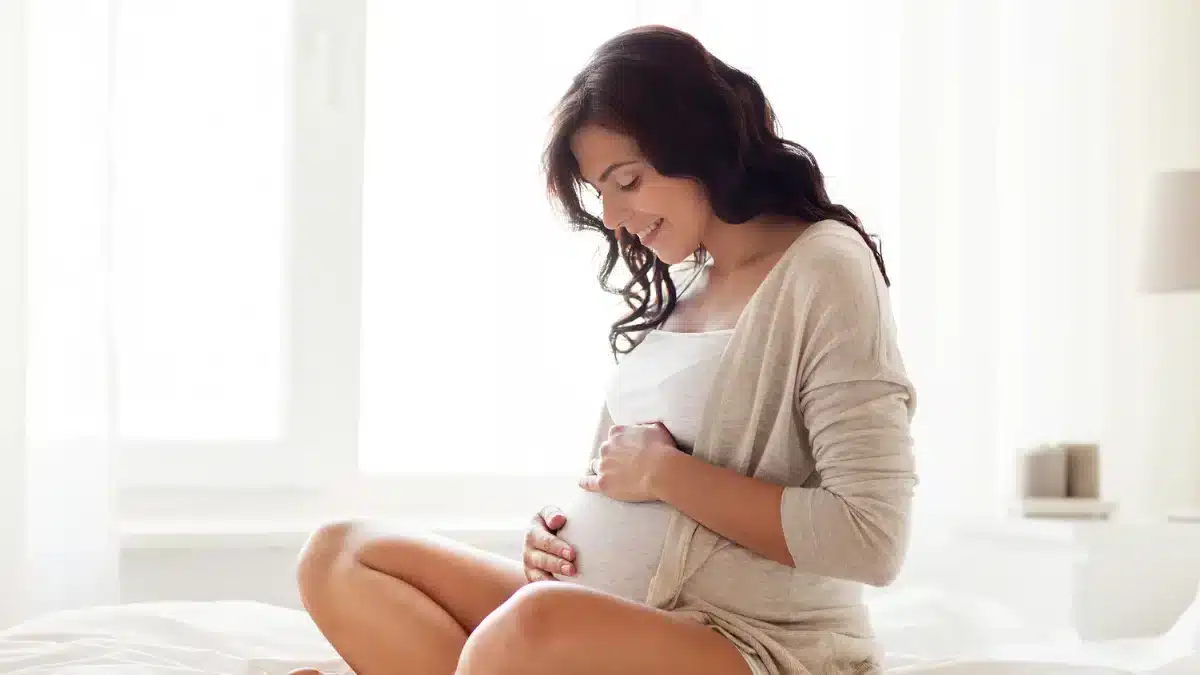Pregnancy After IUD Removal: What To Expect and How Long Does It Take?
Choosing to start a family is a joyful and significant decision.
For those who have chosen to conceive after using an Intrauterine device (IUD), there are unique considerations and questions that may arise.
One of the first questions many individuals have is how soon they can expect to conceive after IUD removal.
Seeking guidance from healthcare professionals is crucial during this phase, as they can provide guidance on optimizing your chances of a healthy pregnancy.
This article explores pregnancy after IUD removal in detail, discussing the common worries people might face.
How long after IUD removal can you get pregnant
Pregnancy becomes possible immediately following the removal of the IUD.
Most people notice that their periods go back to their usual cycle soon after IUD removal.
It makes it easier to get pregnant in the next few months.
However, the speed at which one can conceive after IUD removal varies based on age and individual factors.
Some women may conceive sooner (within 1 month), while others take longer (up to 18 months).
Also, women who had IUD insertions after abortion and those who were 30 years or older took a bit more time to get pregnant.
The time difference it took to conceive was not large enough to be considered statistically significant.
Early signs of pregnancy after IUD removal
After the removal of an IUD, a woman may experience various early signs of pregnancy, which are similar to those in pregnancies unrelated to IUD use.
Some of the common early signs of pregnancy after IUD removal include:
- Sensitive or sore breasts
- Missed period
- Tiredness
- Nausea and vomiting
- Frequent urination
Is it tough to get pregnant after IUD removal

No, it is not tough to get pregnant after IUD removal.
A study published by The National Library of Medicine in 2018 examines the return of fertility after discontinuation of contraception.
Researchers looked at 22 studies involving 14,884 women who stopped using contraception.
After analyzing the data, they found that 83.1% of these women became pregnant within the first 12 months after stopping contraception.
Interestingly, the use of contraceptives, irrespective of the type, does not adversely impact the ability to conceive after discontinuation or removal.
For those who are facing difficulty in conceiving after IUD removal, it is important to consult with a healthcare professional.
It is possible that these difficulties might be the result of other problems.
Underlying fertility problems, such as scarring in the uterus or pelvic pain, could impact conception.
Birth control options post-IUD removal
Timing plays a crucial role in family planning post-IUD removal.
Those looking to avoid immediate pregnancy need to discuss alternative contraception methods with their healthcare provider.Various options, including oral contraceptives, implants, patches, and more, offer flexibility.
Discussing family planning goals with a healthcare provider helps tailor the choice of contraception to individual preferences and timelines.
Is there a risk of Ectopic pregnancy after IUD removal
No, there is no risk of Ectopic pregnancy after IUD removal.
Ectopic pregnancy occurs when a fertilized egg implants outside the uterus, commonly in the fallopian tube. It poses serious health risks.
A study published by The National Library of Medicine examined the risk of Ectopic pregnancy among past IUD users.
The research concludes that former IUD users, particularly those who had the IUD removed for planned pregnancy, are not at an increased risk.
The cumulative conception rate in women after 5 years was 93.7%, with only 0.3% being Ectopic pregnancies.
Conclusion
In general, fertility returns promptly after IUD removal. The timeline for getting pregnant after IUD removal varies.
While some conceive within a month, individual factors, age, and previous IUD history can influence the duration.
Recognizing early signs, such as sensitive breasts, missed periods, tiredness, nausea, and frequent urination, aids in understanding potential pregnancy.
Studies affirm that it is not challenging to conceive after IUD removal.
However, if difficulties arise, consulting healthcare professionals is crucial to assess underlying fertility issues.
For those not yet ready for pregnancy immediately after IUD removal, consider backup or alternative birth control options like condoms and pills.
Frequently Asked Questions
How long after IUD removal can you get pregnant?
After IUD removal, fertility usually returns, and conception varies among individuals. While some become pregnant within a month, timelines differ based on factors such as age and medical history. Consultation with healthcare professionals is recommended for personalized guidance on conception.
How long after IUD removal can you get pregnant?
After IUD removal, fertility usually returns, and conception varies among individuals. While some become pregnant within a month, timelines differ based on factors such as age and medical history. Consultation with healthcare professionals is recommended for personalized guidance on conception.
Is there a risk of Ectopic pregnancy after IUD removal?
No, there is typically no increased risk of Ectopic pregnancy after IUD removal. Research indicates that former IUD users, particularly those who have removed their IUD for planning pregnancy, have a low risk. However, if difficulties occur in conceiving after IUD removal, it is essential to consult with doctors.
Is it tough to get pregnant after IUD removal?
No, it is generally not tough to conceive after IUD removal. If difficulties arise in conceiving after IUD removal, potential reasons may include underlying fertility issues such as scarring or pelvic pain. Consulting healthcare professionals is crucial to identify and address these factors.
What are the early signs of pregnancy after IUD removal?
Early signs of pregnancy after IUD removal are the same for those with a normal pregnancy. Common signs may include sensitive or sore breasts, missed periods, tiredness, nausea, and frequent urination.
WowRx uses only high-quality sources while writing our articles. Please read our content information policy to know more about how we keep our content reliable and trustworthy.






